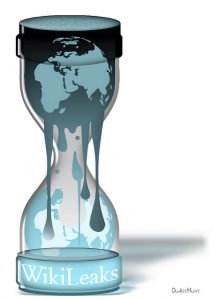
The continued mass dumping of Hillary Clinton’s personal emails by WikiLeaks makes one wonder about the fine line between transparency in government and violations of privacy. Recently, NPR spoke to UNC sociologist Zeynep Tufekci about this very issue. Tufekci acknowledges the importance of whistle-blowing, saying that items like Clinton’s Goldman Sachs speeches pass the public interest test. However, she goes on to explain that what is currently being done by WikiLeaks may go beyond simply exposing a politician’s attempt to keep secrets. She explains,
“[T]here’s a lot of personal information that is being exposed. What this does – and this is what scares me – is that this method is going to be used in the future to any political organization – dissident organizations – that are trying to challenge power. And what they’re going to end up seeing is that their personal information is going to be dumped for the world.”
For Tufekci, it does not have to be all or nothing. Her ideal is that the hacks would go through journalists who could pass on things that are in the interest of the public. This method could help avoid having a flood of distracting information that makes it difficult for people to figure out what is important and what is not. Consider her response to the adage, “Never write an email that you wouldn’t be willing to see on the front page of the New York Times”:
“That, as a warning, strikes me a little bit like you shouldn’t wear miniskirts if you don’t want to be sexually assaulted, to be honest. It might not be – it might be something you take into account. But it doesn’t mean that if the hacking does occur, that it’s all fair game.”
For now, the debate continues — does being a public official mean you are no longer entitled to a private life? And what kinds of information should be deemed public interest and what should be kept private?

Comments 1
TellCulvers — April 4, 2022
The online organization has said it had no contact with Stone. ... has repeatedly denied passing any information from WikiLeaks to Stone.